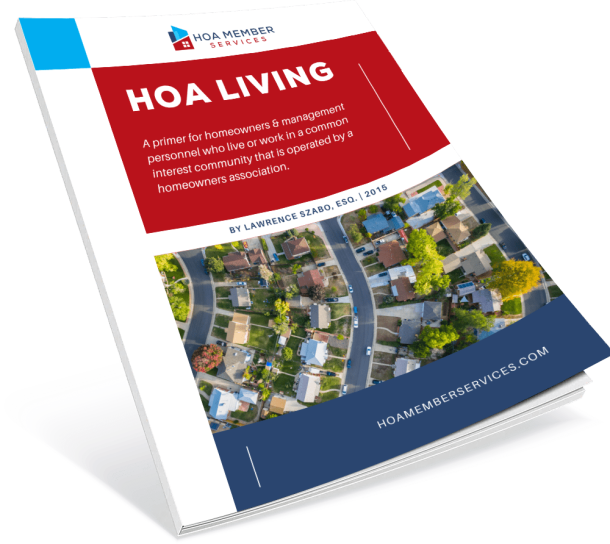When you move into a neighborhood with a Homeowners Association (HOA), you’re stepping into a community that often has a distinct structure for managing common areas and activities. This management includes a specific type of insurance coverage, known as HOA insurance, which is different from the typical homeowners insurance policy you might already be familiar with.
HOA insurance usually protects parts of the community. Homeowners insurance protects your living space. In this article, we’ll discuss the differences in coverage and when you may need both.
What is an HOA?
An HOA is a structured group typically made up of residents within a neighborhood or building. This organization manages and maintains the communal aspects of the living area. Here are some typical responsibilities of an HOA:
- Maintenance of common areas like parks, pools, and recreational facilities.
- Enforcement of community rules that may affect everything from paint colors to parking.
- Budget management for all communal expenses, including gardening, security, and amenities.
HOAs are beneficial to homeowners as they help preserve property values and ensure that every member’s property adheres to certain standards. However, living in an HOA community also means adhering to its rules and contributing to its fees.
What is HOA Insurance?
HOA insurance, also known as a master policy, is a type of commercial property insurance funded through the dues paid by the members of a homeowners association. This insurance primarily covers physical damage to community structures and common areas as well as certain liability expenses.
It includes repair or replacement costs for communal property like parks, playgrounds, public spaces, the exterior of buildings, and shared internal areas such as stairwells and lobbies. Additionally, it provides general liability coverage, which protects against legal claims if someone is injured in these common areas, covering legal defenses and settlements.
What Does HOA Insurance Typically Cover?
HOA insurance does not extend to damages or liability issues that occur within an individual’s private property or to personal belongings inside homes or condos. Common exclusions also include damage caused by natural disasters, such as floods or earthquakes, unless specifically covered under the policy. Here’s what it does cover:
- Property Damage: This includes damage to shared property. It covers buildings, landscaping, playgrounds, and other shared facilities. The damage is from events like fires or storms.
- Liability: Liability insurance provides protection if someone is injured in common areas. It covers legal and medical expenses.
This insurance is important. It protects all members from paying for large claims involving shared spaces. It also makes sure the common areas are well-maintained and protected. These areas enhance the living experience and property values.
What Does HOA Insurance Not Cover?
While HOA insurance covers a lot, there are some things it doesn’t. For example, most policies don’t cover intentional damage, such as vandalism or arson. HOA insurance also doesn’t generally doesn’t cover damage caused by poor maintenance or wear and tear.
Why is HOA Insurance Necessary?
Many states and HOA bylaws mandate the maintenance of an HOA insurance policy to protect communal properties and manage liability effectively. This insurance is crucial as it is financial protection and prevents individual members from facing significant financial burdens for major communal repairs or legal claims related to common areas.
What is Homeowners Insurance?
While HOA insurance is for the common areas of your community, homeowners insurance is personal. It covers your living space and belongings. This insurance is vital for protecting your personal property. It also covers liability for incidents within your home.
Key Components of Homeowners Insurance
- Damage to your home and other structures on your property, such as a detached garage or shed.
- Personal belongings in your home, such as furniture, clothing, and electronics.
- Loss of use of your home if you can’t live there while it’s being repaired. Including, additional living expenses if you have to live elsewhere while your home is being repaired.
- Medical expenses for someone who’s injured on your property.
- Lawsuits if you’re sued for accidental injuries or damage that you cause.
What Does Homeowners Insurance Not Cover?
While homeowners insurance does cover a lot, there are some things it doesn’t. For example, most policies don’t cover damage caused by flooding or earthquakes.
You’ll need to purchase separate insurance policies or insurance riders for these types of events.
Also, home insurance doesn’t cover intentional damage. This includes vandalism or arson. Nor does it cover damage caused by poor maintenance or wear and tear.
Levels of Coverage For Home Insurance
There are three primary levels of homeowners insurance coverage:
- Actual Cash Value (ACV) is the lowest coverage amount. It covers the current value of your home or belongings after depreciation.
- Replacement Cost (RC) pays to repair or replace your home and belongings. It does not factor in depreciation.
- ERC is the highest level of coverage. It pays to repair or replace your home and belongings, even if the costs exceed your policy limit.
When choosing coverage, it’s crucial to consider the value of your home and belongings and the risks specific to your area. Once you’ve chosen the right coverage for your needs, review your policy regularly and update it as needed. This will help ensure that you’re always adequately protected.
Frequently Asked Questions (FAQs)
1. How do the coverages differ?
Scope of Coverage:
- HOA Insurance: Focuses on shared areas within the community.
- Homeowners Insurance: Covers individual properties and the owner’s liabilities within those properties.
Responsibility for Payment:
- HOA Insurance: Paid through HOA fees collected from all residents.
- Homeowners Insurance: Individually purchased by homeowners and tailored to their specific needs.
2. Is an HOA master policy mandatory?
Many states mandate that HOAs maintain a master policy, but the specific coverage required can vary. For example, in California, HOAs are required to have at least $2 million in commercial general liability coverage. It is essential for HOA members to familiarize themselves with the insurance regulations applicable in their state to ensure compliance and adequate liability protection.
3. What is the cost of an HOA Master Policy?
The cost of an HOA master policy can range significantly, typically between $200 and $500 per month, but it can be higher depending on several factors:
- Type of Property Damage Coverage: Costs can vary depending on whether the policy is a “bare walls” or “all-in” coverage, with the latter usually being more expensive.
- Liability Coverage Amount: Higher limits on liability coverage increase the premium.
- Property Size and Amenities: Larger properties with more amenities tend to have higher insurance costs.
- Deductible Amount: Lower deductibles generally result in higher premiums, and vice versa.
- Property Location: Premiums may also be influenced by the property’s location, including ZIP code and local crime rates.
4. Who is responsible for funding an HOA master policy?
Typically, HOA members contribute to the premium costs through their monthly or annual dues. Depending on the situation, the HOA might pay the policy’s deductible from its general funds. However, costs can also be allocated among homeowners for specific incidents, such as damage to communal property like a clubhouse. Conversely, if a homeowner or condo unit is found liable for damages within their unit, they might be responsible for covering the deductible on the HOA policy claim.
5. Are there optional coverages for an HOA Master policy?
HOAs might consider adding optional coverages to their master policy to address specific risks:
- Directors & Officers Insurance: This covers legal expenses, settlements, and financial losses incurred by the HOA’s members, directors, officers, and managers.
- Employee Dishonesty Coverage: Protects against losses due to theft, fraud, or other dishonest acts by an HOA employee.
- Discrimination Claims Coverage: Offers protection if the HOA faces legal action related to foreclosing on properties owned by individuals in protected classes.
- Workers’ Compensation: Provides benefits to HOA employees who suffer work-related injuries.
Understanding these aspects helps HOA members, condo owners and boards ensure they are adequately protected and compliant with relevant laws.
HOA Insurance Vs Homeowners Insurance: When Would You Need Both?
Living in an HOA community typically requires both types of insurance. Your HOA will typically hold responsibility for the HOA insurance which covers communal areas. You will pay into the HOA insurance monthly from your HOA fees. But, it does not cover your home or your personal liabilities. Homeowners insurance fills this crucial gap. It protects you from property damage and liability.
Assessing Your Coverage Needs:
- Review the HOA’s master policy: Understand what it covers and what it doesn’t.
- Evaluate personal risks and property value: This will help find the amount of homeowners insurance needed.
If you would like to learn more about HOA insurance vs homeowners insurance, HOA Member Services is here to help. With a wealth of resources, you’re sure to be able to find what you’re searching for. If you also choose to become an HOA Member Service member, you can access all of our forms, guides, articles, and more, free of charge.
Conclusion
Both HOA insurance and homeowners insurance are essential for full protection. You may need them in an HOA community. The HOA insurance protects common areas and the community. It covers the whole community. Homeowners insurance covers your property and liability. It covers your personal things and risks. Together, they provide a comprehensive shield against many of the risks property owners face. Always stay informed about the details of your policies and adjust them as needed to ensure you are fully covered.











